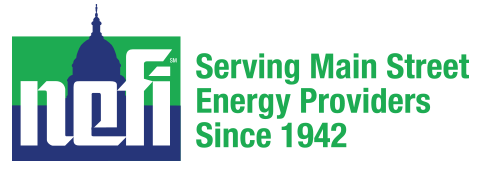The Federal Truth in Lending Act requires prompt correction of billing mistakes
- If you want to preserve your rights under the Act, here's what to do if you think your bill is wrong or if you need more information about an item on your bill:
- Do not write on the bill. On a separate sheet of paper write (you may telephone your inquiry but doing so will not preserve your rights under this law) the following:
- Your name and account number (if any).
- A description of the error and an explanation (to the extent you can explain) why you believe it is an error. If you only need more information, explain the item you are not sure about and, if you wish, ask for evidence of the charge such as a copy of the charge slip. Do not send in your copy of a sales slip or other document unless you have a duplicate copy for your records.
- The dollar amount of the suspected error.
- Any other information (such as your address) which you think will help us to identify you or the reason for your complaint or inquiry.
- Send your billing error notice to the address on your bill which is listed after the words: "Send inquiries To:" Mail it within 60 days after the bill was mailed to you.
- We must acknowledge all letters pointing out possible errors within 30 days of receipt, unless we are able to correct your bill during that 30 days. Within 90 days after receiving your letter, we must either correct the error or explain why we believe the bill was correct. Once we have explained the bill, we have no further obligation to you even though you still believe that there is an error, except as provided in paragraph 5 below.
- After we have been notified, neither we nor any attorney nor a collection agency may send you collection letters or take other collection action with respect to the amount in dispute; but periodic statements may be sent to you, and the disputed amount can be applied against your credit limit. You cannot be threatened with damage to your credit rating or sued for the amount in question, nor can the disputed amount be reported to a credit bureau or to other creditors as delinquent until we have answered your inquiry. However, you remain obligated to pay the parts of your bill not in dispute.
- If it is determined that we have made a mistake on your bill, you will not have to pay any finance charges on any disputed amount. If it turns out that we have not made an error, you may have to pay finance charges on the amount in dispute, and you will have to make up any missed minimum or required payments on the disputed amount. Unless you have agreed that your bill was correct, we must send you a written notification of what you owe; and if it is determined that we did make a mistake in billing the disputed amount, you must be given the time to pay which you normally are given to pay undisputed amounts before any more finance charges or late payment charges on the disputed amount can be charged to you.
- If our explanation does not satisfy you and you notify us in writing within 10 days after you receive our explanation that you still refuse to pay the disputed amount, we may report you to credit bureaus and other creditors and may pursue regular collection procedures. But we must also report that you think you do not owe the money, and we must let you know to whom such reports were made. Once the matter has been settled between you and us, we must notify those to whom we reported you as delinquent of the subsequent resolution.
- If we do not follow these rules, we are not allowed to collect the first $50 of the disputed amount and finance charges, even if the bill turns out to be correct.
- If you have a problem with property or services purchased with a credit card, you may have the right not to pay the remaining amount due on them, if you first try in good faith to return them or give the merchant a chance to correct the problem. There are two limitations on this right:
- You must have bought them in your home state or if not within your home state within 100 miles of your current mailing address; and
- The purchase price must have been more than $50.
However, these limitations do not apply if the merchant is owned or operated by the creditor, or if the creditor mailed you the advertisement for the property or services.
- Buyer agrees that Seller may make changes in the rates, charges and other terms of this Agreement from time to time hereafter, provided that Buyer is given notice of such changes and they do not exceed the limits established by law.
- If the buyer fails to make any payment when due, Seller may declare the full remaining balance due and payable and Buyer agrees to pay court costs and reasonable attorney's fees not in excess of 25 per cent of the unpaid balance after default and referral to an attorney who is not a salaried employee of the Seller.
NOTICE: The Federal Equal Credit Opportunity Act prohibits creditors from discriminating against credit applicants on the basis of sex or marital status. The Federal agency which administers compliance with this law concerning this creditor is Equal Credit Opportunity, Federal Trade Commission, Washington, D.C. 20580.













